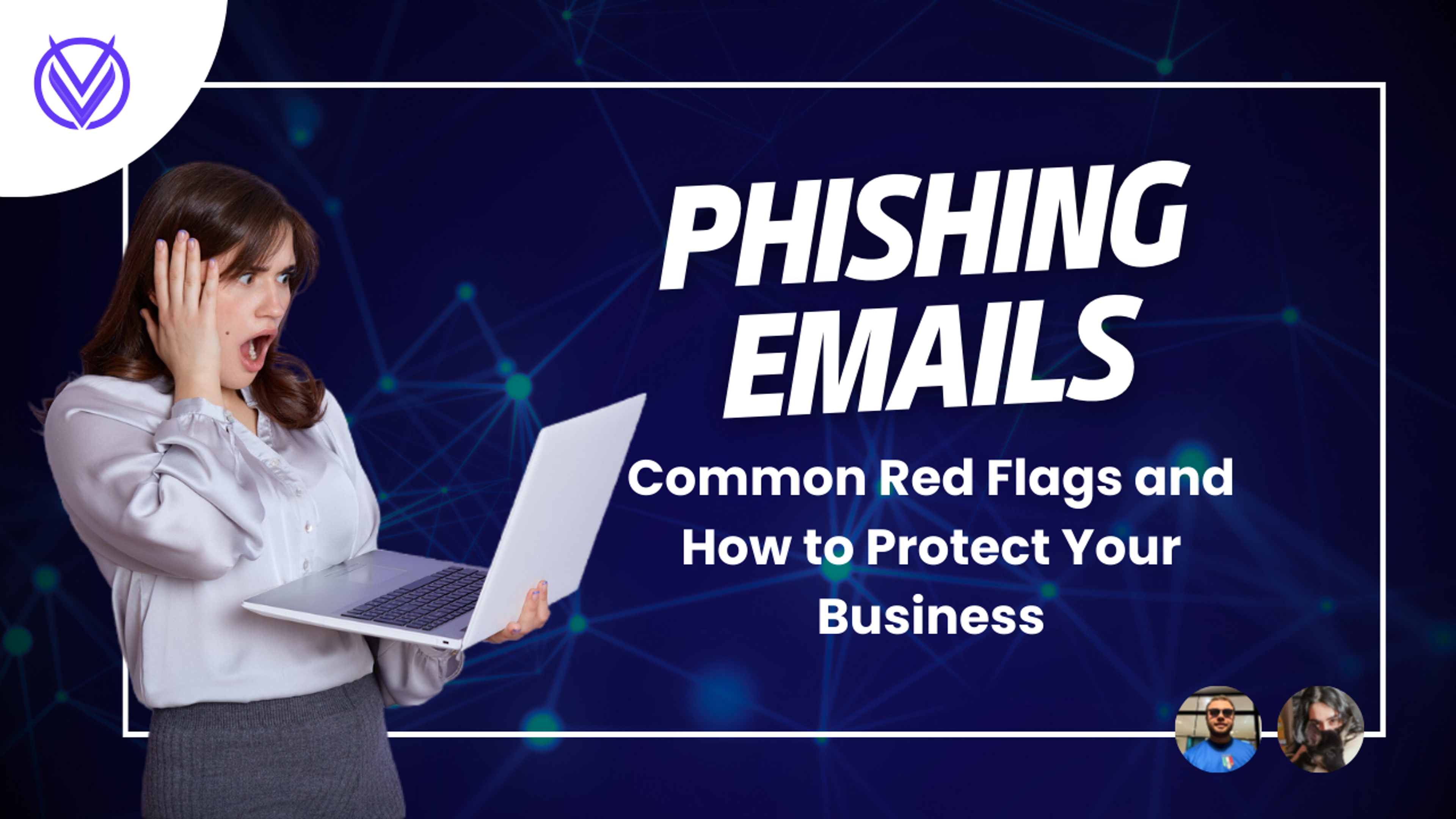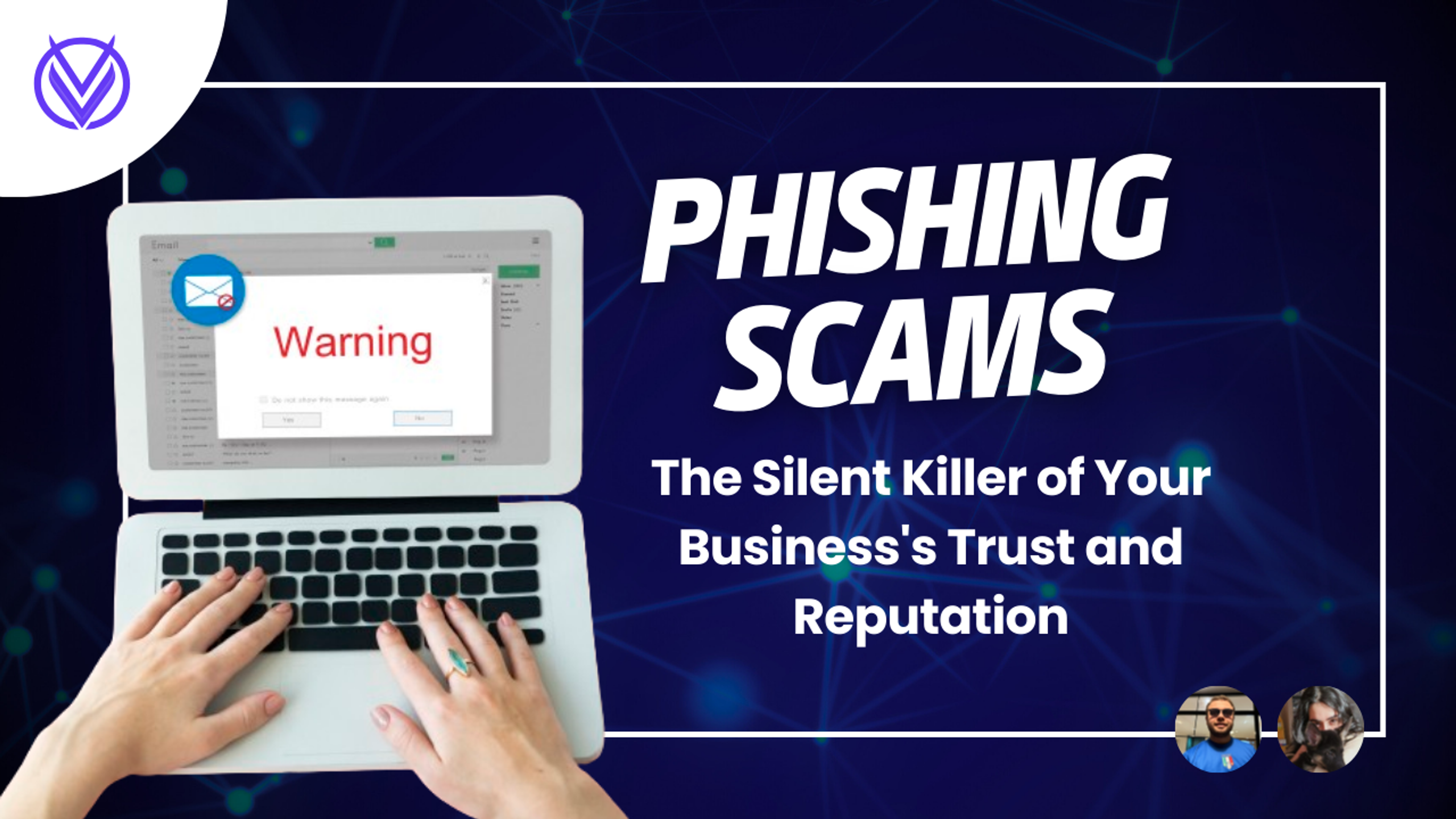
Cybersecurity isn’t just an option - it’s a must for every business, regardless of size. With cyber threats evolving day by day, it's not an option to fall behind the game. Below, we’ve outlined ten essential cybersecurity tips to help you protect your business, data, and reputation from potential cyberattacks.
1. Train Your Employees
Your employees are your first line of defense against cyber-attacks, but they can also be your weakest chain if they do not know about cyber security or phishing. Regular and engaging cybersecurity training can strengthen your staff to take action against to threats effectively.
In 2023, 83% of companies were hit by phishing attacks, according to Proofpoint. Well-trained employees are better equipped to spot phishing emails, avoid social engineering scams, and handle sensitive data responsibly. Making these sessions interactive and relatable is key to keeping your team engaged and vigilant.

2. Use Strong Passwords and Multi-Factor Authentication (MFA)
Passwords are the keys to your digital identity, and weak ones are no different than leaving your front door wide open. Having strong passwords and MFA adds an extra layer of security that can block any unauthorized access attempts.
According to LastPass, 81% of data breaches are due to weak or stolen passwords. Using a password manager across the company helps generate and store strong, unique passwords, and enabling two-factor authentication (2FA) wherever possible significantly reduces the risk of unauthorized access.
3. Keep Your Systems Up-to-date
Outdated software is like an unlocked door to your network. Regular updates are key to saving from vulnerabilities before cybercriminals can break into your software. In 2022, 60% of data breaches stem from outdated vulnerabilities. Establishing a well-ordered update schedule for operating systems, applications, and antivirus software is crucial. Automated tools like Windows Update for Business can help ensure your systems stay up-to-date and secure.
4. Secure Your Network
Your network is the backbone of your digital traffic, and securing it is critical. Having network security measures helps lock down your digital accounts and prevents any possible leak into your profiles.
In 2021, 61% of small to midsize businesses (SMBs) were victims of cyberattacks. Securing your network with firewalls, secure routers, and VPNs, along with changing default passwords and regularly updating software, can protect your business from these threats. Training your staff on network security best practices further strengthens your defense.
5. Encrypt Your Data
Encryption is the process of transforming data into a code to block unauthorized access. It is securing your information in a safe that only those with the key can unlock.
In 2019, Capital One saw a huge data breach because of improper encryption, costing them $190 million in settlement fees. Encrypting all sensitive data, including customer information, financial records, and employee data, is essential to protect against unauthorized access. Regularly updating your encryption methods ensures that your defenses stay ahead of evolving threats.
6. Back Up Regularly
Backing up your data ensures you have a copy in case of an attack, system failure, or other unforeseen events. It’s like having a spare key to your house—crucial when something goes wrong.
When Colonial Pipeline was hit by a ransomware attack in 2021, their backup system enabled them to restore operations quickly. Setting up a regular backup schedule based on how often your data changes, and using a combination of full, incremental, and differential backups, ensures that your business can recover quickly from any data loss.
7. Develop an Incident Response Plan
An Incident Response Plan (IRP) outlines the steps your business should take in the event of a cyberattack. Having a well-prepared plan can help you respond quickly and minimize damage.
Cyberattacks are costly—data breaches cost an average of $4.35 million. An effective IRP includes a dedicated team, clear steps for identifying and containing the threat, and regular drills to ensure everyone knows their role. Regularly reviewing and updating the plan keeps it relevant and effective.
8. Control Access to Information
Not everyone in your organization needs access to all data. Implementing access controls can limit exposure to sensitive information and reduce the risk of insider threats.
Verizon reports that 30% of data breaches involve insiders, whether intentional or accidental. Using role-based access control (RBAC) ensures employees only have access to the information necessary for their jobs. Regularly reviewing access levels and adjusting them as needed helps protect sensitive data from unnecessary exposure.
9. Use Cybersecurity Tools and Services
Cybersecurity tools are essential for protecting your business from attacks. These tools can automate security processes, monitor for threats, and provide additional layers of defense.
SMBs are often main targets for cyberattacks, with 43% of all cyberattacks aimed at small businesses, according to the Verizon Data Breach Investigations Report. Using firewalls, anti-malware software, email encryption tools, password managers, and MFA helps secure your digital assets. Regularly updating these tools ensures they remain effective against new and emerging threats.

Cybersecuirty professionals can help you protect yourself and your business. We can be of help! With Vigilainte you can run phishing tests and train your employees. Contact us to learn more about how we can make your business secure today.
10. Use Strong Passwords
A strong password policy is the foundation of your cybersecurity efforts. Weak passwords are one of the easiest ways for hackers to gain access to your systems.
Establishing clear rules for password creation, including requirements for length, complexity, and regular updates, is essential to prevent unauthorized access. Using tools like haveibeenpwned.com to check if any passwords have been compromised, and enforcing the use of MFA, further enhances your organization’s security posture.
Cybersecurity is an ongoing process that requires continuous attention and improvement. By following these ten tips, you can significantly diminish your business’s risk of falling victim to a cyberattack. Remember, it is not a question of if you'll be targeted, but when. Taking proactive steps today will protect your business, data, and reputation tomorrow.
Don’t wait for a crisis to test your security—start empowering your defenses now. Your business, and your bottom line, will thank you afterwards.
Related Posts

Phishing attacks are being aimed at sensitive and confidential information such as usernames, passwords, credit card information, and network credentials.

You’d think that by now, we’d all be immune to phishing scams—those annoying, fake emails asking us to “verify” our bank account or click on a sketchy link.
